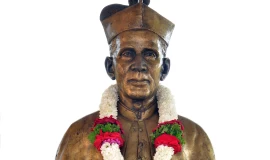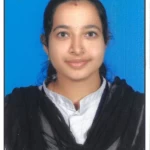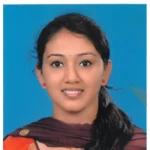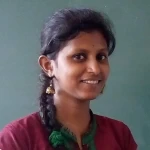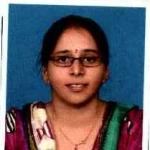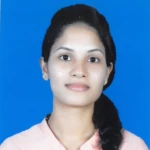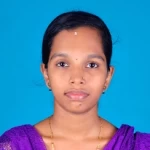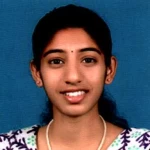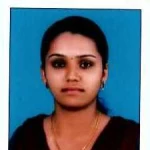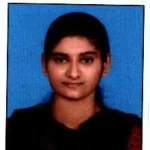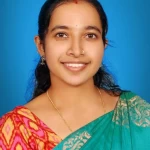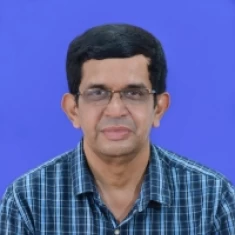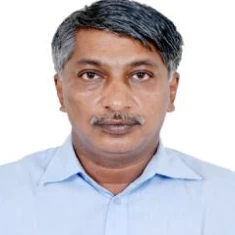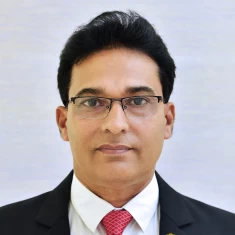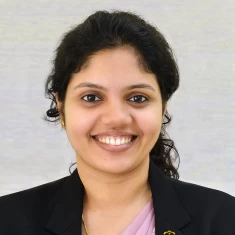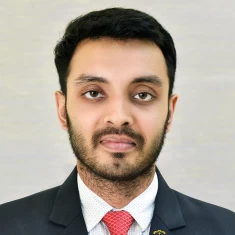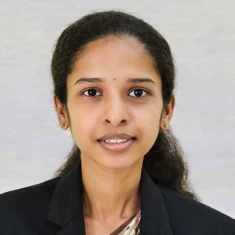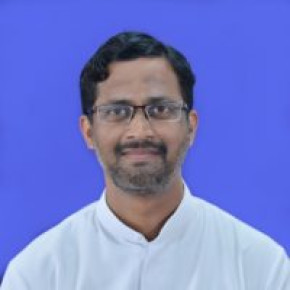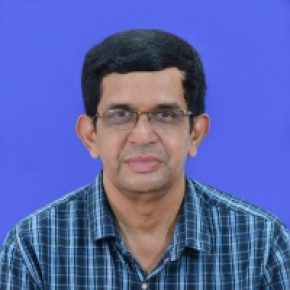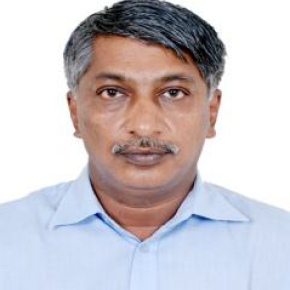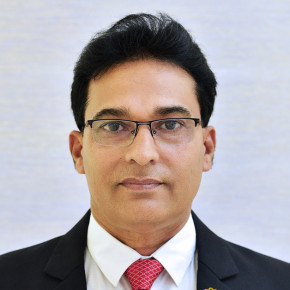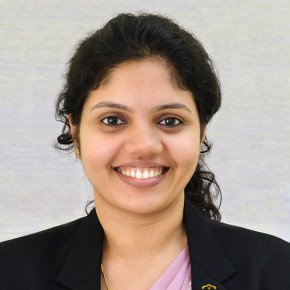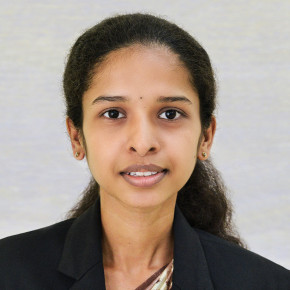Awards and Achievements:
1. Best Poster Presentation Award at International Conference on Advanced Material Synthesis,
Characterization and Applications (AMSCA), held at Savitribai Phule Pune University (18-20 th
October 2022).
2. Participated in Summer Research Fellowship Programme organized by Indian Institute
of Technology Ropar and submitted a project on “Few Particle System in Non-Linear
Potential”.
3. Received Sir. C.V. Raman Scholarship (2014-2017)
Paper Presentations:
1. Shilpa M P, K S Ashadevi, Naresh Nalajala, Gurumurthy S C (2024). Tuning the SO 2 sensing
behavior of Ti 3 C 2 MXene by the anchoring of Ag nanoparticles, 11 th National Conference on
Condensed Matter Physics and Applications, organized by department of Physics, Manipal
Institute of Technology, Manipal, 14-15 th December.
2. Shilpa M P, Prakrthi A N, Ravikirana, Gurumurthy S C (2021) Photocatalytic activity of Au and Cu
nanoparticles for the degradation of organic dyes, International Conference on Nanoscience and
Nanotechnology (ICONN), SRM Institute of Science and Technology, Kattankulathur, 01 – 03
February.
3. Shilpa M P, Gurumurthy S C, Mamatha Ballal, Shridhar Mundinamani (2021) Biofabrication of
gold and silver- based mono and bimetallic nanoparticles for catalytic degradation of 4-
nitrophenol and their antibacterial activity against Pseudomonas aeruginosa, Virtual
International Conference on Chemistry for Next-Gen Applications, ICCNA-2021, Sivasubramaniya
Nadar (SSN) College of Engineering, 24-25, September.
4. Shilpa M P, Shivakumar Jagadish Shetty, Santhosh G, Murari M S, Gurumurthy S C (2022)
Synthesis of AgRGO nanocomposite using single-step co-reduction approach for catalytic
reduction of 4-nitrophenol, International Conference on Advanced Material Synthesis,
Characterization and Applications (AMSCA), Savitribai Phule Pune University, 18-20, October.
5. Shilpa M P, Shivakumar Jagadish Shetty, Saideep Shirish Bhat, Gurumurthy S C (2023) Influence
of decoration of Ag nanoparticles on room temperature acetone detection of reduced
graphene oxide, 7 th International Conference on Nanoscience and Nanotechnology (ICONN), SRM
Institute of Science and Technology, Kattankulathur, 27– 29 March.
5. Shivakumar Jagadish Shetty, Shilpa M P, Shivamurthy R C, Gurumurthy S C (2023) Efficiency of
Surface modified MWCNTs for photodegradation of organic dyes, International Conference on
Advanced Material Synthesis, Characterization and Applications (AMSCA), Savitribai Phule Pune
University, 18-20 th October.
6. Anusha Dsouza, Shilpa M P, S C Gurumurthy, Kuduri Ramam (2020) CuAg and AuAg bimetallic
nanoparticles for photocatalytic and heat transfer applications, 8 th National Conference on
Condensed Mater Physics and Applications (CMPA), Manipal Institute of Technology, Manipal
Academy of Higher Education, Manipal, Udupi, Karnataka, September 2020.
7. Smita Mahadevappa Nyamgoudar, Shilpa M P,Vasavi Prasuna Silaparasetti, Gurumurthy S C
(2021), Enhanced Thermal Conductivity of Silver Nanorods based Nanofluids, International
Materials Science Conference, School of Physical Sciences, Kavayitri Bahinabai Chaudhari North
Maharashtra University, Jalgaon, Maharashtra,18-20 th March.
8. Desmond Gracian Rebello, Shilpa M P, Shivakumar Jagadish Shetty, Saideep Shirish Bhat, Murari
M S, Gurumurthy S C (2022). Synthesis of novel Ni/Cu/Ag trimetallic nanoparticles using the
polyol method, Condensed Matter Physics and Applications organized by department of
Physics, Manipal Institute of Technology, Manipal, 2-3 December.
9. Desmond Gracian Rebello, Shilpa M P, Shivakumar Jagadish Shetty, Saideep Shirish Bhat,
Parutagouda Shankaragouda Patil, Neelamma B. Gummago, Gurumurthy S C (2023) Polyol
assisted synthesis of Ni/Cu/Ag Trimetallic nanoparticles for heat transfer and nonlinear
optical applications, International Conference on Nanoscience and Nanotechnology organized
by department of Physics and Nanotechnology, SRM Institute of Science and Technology,
Chennai. 27-29 th March.
10. Saideep Shirish Bhat, Shilpa M P, Shivakumar Jagadish Shetty, Gurumurthy S C, Murari M S
(2023) Impact of ultraviolet irradiation on structural and optoelectronic properties of Ni-
doped ZnO thin film, International Conference on Nanoscience and Nanotechnology organized
by department of Physics and Nanotechnology, SRM Institute of Science and Technology,
Chennai. 27-29 th March.
11. Shreya Rao, Shivakumar Jagadish Shetty, Shilpa M P, Murari M S, Gurumurthy S C (2022),
Enhanced catalytic efficiency of Ni-TiO 2 nanoparticles for the degradation of rhodamine B,
International Conference on Innovations in Applied Science and Engineering, organized by
Department of Physics, Department of Humanities and Management, Department of
Mathematics and Electronics and Communication Engineering, NIT Jalandhar, 18-19 th May.
12. Shreya Rao, Shilpa M P, Shivakumar Jagadish Shetty, Saideep Shirish Bhat, Murari M S,
Parutagouda Shankaragouda Patil, Neelamma B. Gummagol, Gurumurthy S C (2023) Impact of
zinc doping on nonlinear optical applications of TiO 2 nanoparticles, International Conference
on Nanoscience and Nanotechnology (ICONN-2023) organized by Department of Physics and
Nanotechnology, SRM Institute of Science and Technology, Chennai, 27-29 th March.
Participation in seminars/workshops/conferences:
1. Participated in the National Workshop on “Accelerator-Based Science Research” jointly
organized by the Department of Physics, the Central University of Kerala on 29th October 2018.
2. Participated in National Board for Higher Mathematics (NBHM) sponsored two-day National
Workshop on Mathematical Physics, held at St Philomena College, Puttur, Karnataka, on the
23rd and 24th of October 2017.
3. Participated in the National Webinar on “Applications of Thin Film Technology” organized by
the Department of Physics, Dr A. V. Baliga College of Arts and Science, Kumta, Uttara Kannada,
Karnataka on 24 th August 2020.
4. Participated in Online One-Week National Workshop on “Advanced Physical Tools and
Techniques for Materials Characterization” organized by the Department of Physics, Mahatma
Gandhi Central University, Moitihari, Bihar held from 28 th July to 03 rd August 2020.
5. Participated in the “Basic Training Program in Nano Science and Technology (Online mode)”,
supported by Ministry of Human Resource Development (MHRD), Govt. of India and conducted
by the Centre for Nano Science and Engineering, Indian Institute of Science, Bangalore, from 10
– 12 May 2021
6. Participated in Hands-on Training on “Nanofabrication and Characterization Techniques” held
at Centre for Nano Science and Engineering, Indian Institute of Science, Bangalore, from 18-28 th
April 2022.
Other Publications:
Shreya Rao, M.P. Shilpa, Shivakumar Jagadish Shetty, M.S. Murari, G Santhosh, Srivathsava
Surabhi, Ravikirana, S.C. Gurumurthy. “A comparative study on impact of the synthesis
techniques on the catalytic properties of Ni-doped titania, Materials Science and Engineering: B
299 (2024): 117013.
C.M. Kavitha, K.M. Eshwarappa, M.P. Shilpa, Shivakumar Jagadish Shetty, Srivathsava Surabhi,
A.P. Shashidhar, N. Karunakara, S.C. Gurumurthy, Ganesh Sanjeev. “Tuning the optical and
electrical properties by gamma irradiation of silver nanoparticles decorated graphene oxide
on glutaraldehyde crosslinked polyvinyl alcohol matrix” Materials Research Bulletin 173 (2024)
112685.
Shivakumar Jagadish Shetty, M.P. Shilpa, Saideep Shirish Bhat, K.S. Pavithra, Sudheer Moorkoth,
Ashutosh Gupta, Srivathsava Surabhi, R.C. Shivamurthy, S.C. Gurumurthy. “Surface
functionalized multi-wall carbon nanotubes for degradation of organic dyes” Materials
Chemistry and Physics 311 (2024) 128566.
Kunabevu Mallikarjunappa, Shilpa Molakkalu Padre, S. C. Gurumurthy, Srivathsava Surabhi,
Jong-Ryul Jeong, Daniela Valentina Morales Montecinos, and M. S. Murari. “ A combined
experimental and computational study of flexible polyvinyl alcohol (PVA)/graphene oxide
(GO) nanocomposite films for superior UV shielding with improved mechanical.” Materials
Today Communications 35 (2023): 105662.
Sudhakar, Y. N., M. P. Shilpa, Shivakumar Shetty, M. Sreejesh, Shridhar Mundinamani,
Margandan Bhagiyalakshmi, and S. C. Gurumurthy. "Design, Fabrication, and Operation.”
In Supercapacitors and Their Applications, pp. 105-118. CRC Press, 2023. (Book chapter)
Nyamgoudar, Smita Mahadevappa, Vasavi Prasuna Silaparasetti, M. P. Shilpa, K. S. Pavithra,
Shridhar Mundinamani, K. M. Eshwarappa, Srivathsava Surabhi et al. "Analysis of shape
dependency of thermal conductivity of silver-based nanofluids." Journal of Thermal Analysis
and Calorimetry 147, no. 24 (2022): 14031-14038.
Cyriac, Vipin, Shilpa Molakalu Padre, Ismayil, Gurumurthy Sangam Chandrashekar, Chetan
Chavan, Rajashekhar Fakeerappa Bhajantri, and Mudiyaru Subrahmanya Murari. "Tuning the
ionic conductivity of flexible polyvinyl alcohol/sodium bromide polymer electrolyte films by
incorporating silver nanoparticles for energy storage device applications." Journal of Applied
Polymer Science 139, no. 28 (2022): e52525.
Vishwanath, H. S., M. P. Shilpa, S. C. Gurumurthy, Murali Gedda, Koduri Ramam, K. M.
Eshwarappa, Ravi Kirana, Nirankar Nath Mishra, and Shridhar Mundinamani. "Flexible, large-
area, multi-layered graphene/cellulose composite for dye filtration applications" Materials
Today Communications 30 (2022): 103134.
Ganesha, A., H. Girish, M. P. Shilpa, S. C. Gurumurthy, Raghuvir Pai, and Nitesh Kumar.
"Viscosity Analysis of ZnO enriched Neem Oil Biolubricant at Sub Zero Temperatures." In 2021
International Conference on Maintenance and Intelligent Asset Management (ICMIAM), pp. 1-5.
IEEE, 2021.
Dsouza, Anusha, M. P. Shilpa, S. C. Gurumurthy, B. S. Nagaraja, Shridhar Mundinamani, Koduri
Ramam, Murali Gedda, and M. S. Murari. "CuAg and AuAg bimetallic nanoparticles for catalytic
and heat transfer applications." Clean Technologies and Environmental Policy 23, no. 7 (2021):
2145-2155.
Ramam, Koduri, Srivathsava Surabhi, S. C. Gurumurthy, M. P. Shilpa, K. Bindu, Ravikirana, and
Shridhar Mundinamani. "Dielectric and piezoelectric studies of dysprosium-doped BZT–BCNT
perovskite ceramic system for sensors and actuator applications." Journal of Materials Science:
Materials in Electronics 32, no. 13 (2021): 18002-18011.
Jolly, Anju, Anjana Uday, S. C. Gurumurthy, M. P. Shilpa, Srivathsava Surabhi, Shridhar
Mundinamani, Koduri Ramam, Murali Gedda, M. S. Murari, and Jong-Ryul Jeong. "Effect of
silane/amine-based dopants on polymer-metal interaction of sub-surface silver
nanoparticulate films." Journal of Materials Science: Materials in Electronics 32 (2021): 2719-
2730.

